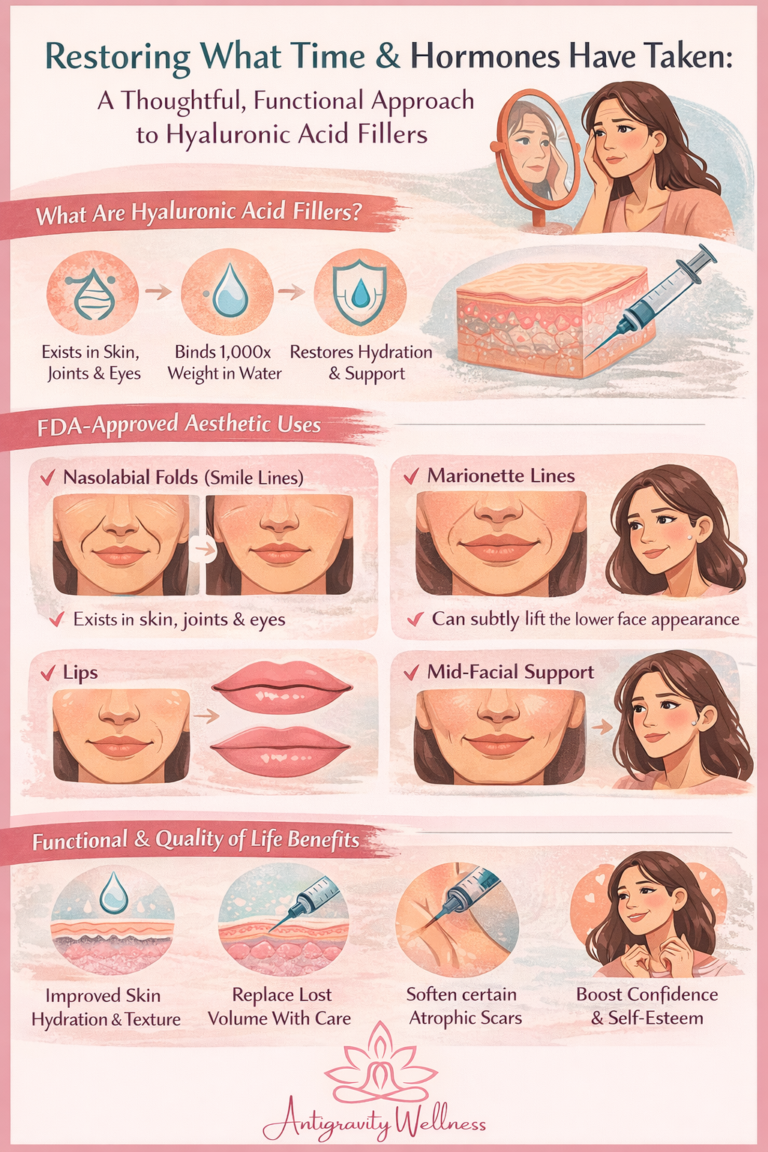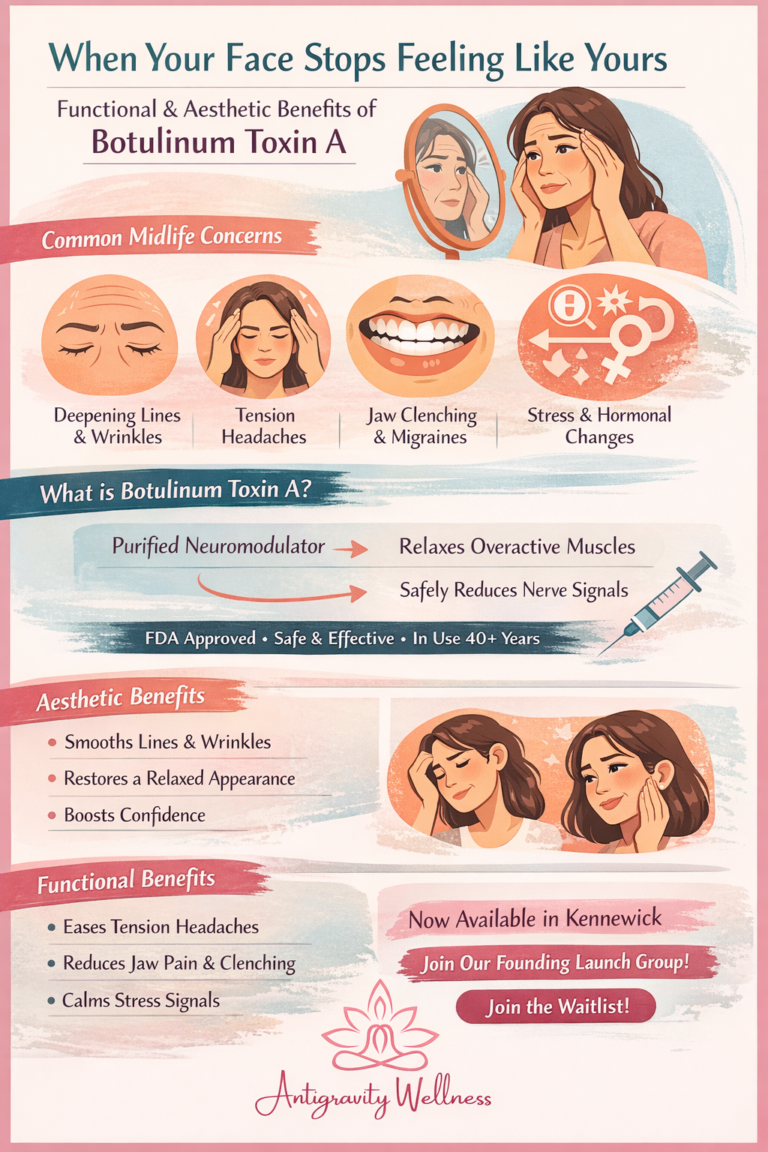
Progesterone is a critical hormone for women’s health, influencing everything from menstrual cycles and fertility to mood and metabolic health. However, not all progesterone is created equal. The differences between natural progesterone and synthetic progestins can have profound impacts on the body. Understanding these distinctions is essential for making informed decisions about hormone replacement therapy and overall health management.
Progesterone vs. Progestin
Natural Progesterone
- Identical in structure to the progesterone produced by the body.
- Supports hormonal balance, improves mood, and helps regulate the menstrual cycle.
- Acts synergistically with other hormones, including estrogen, to promote overall health.
- Positive effects on metabolic health and fat distribution when balanced correctly.
Synthetic Progestins
- Chemically altered versions of progesterone used in many birth control pills and some forms of hormone replacement therapy (HRT).
- Do not act in the body the same way as natural progesterone.
- Linked to adverse effects such as:
- Increased risk of weight gain and visceral fat accumulation.
- Negative impacts on metabolic health, including insulin resistance.
- Higher risk of cardiovascular issues and mood disturbances.
While synthetic progestins can be effective for specific uses, they often worsen the very symptoms they are intended to alleviate, particularly in perimenopausal and menopausal women.
Improving Progesterone Naturally
For women experiencing low progesterone, natural approaches should be the first step.
1. Lifestyle Modifications
- Diet:
- Include foods rich in magnesium (dark leafy greens, nuts) and vitamin B6 (salmon, bananas) to support progesterone production.
- Focus on anti-inflammatory foods like fatty fish, berries, and turmeric.
- Exercise:
- Engage in regular moderate-intensity exercise to lower stress and balance hormones.
- Avoid excessive high-intensity workouts that may suppress progesterone production.
- Stress Management:
- Chronic stress increases cortisol, which competes with progesterone production.
- Practices like yoga, meditation, and deep breathing can help.
2. Herbal Supplements
- Vitex (Chaste Tree Berry):
- Supports natural progesterone production by balancing luteinizing hormone (LH).
- Effective for alleviating symptoms of PMS, perimenopause, and menopause.
Note: Herbal supplements should always be used under the guidance of a healthcare provider to ensure safety and effectiveness.
Bioidentical Progesterone Replacement
Bioidentical progesterone is a natural alternative to synthetic progestins and is often used to treat hormonal imbalances. It is chemically identical to the progesterone produced by the body, making it a safer and more effective option for many women.
Forms of Bioidentical Progesterone
- Oral Capsules: Commonly prescribed for sleep and mood regulation.
- Topical Creams: Absorbed through the skin for localized or systemic effects.
- Vaginal Suppositories: Useful for targeting symptoms like dryness or endometrial support.
Risks and Benefits
While bioidentical progesterone is generally safer than synthetic progestins, it is not without risks. Potential concerns include:
- Drowsiness or fatigue (especially with oral forms).
- Increased risk of blood clots or breast tenderness, though these are significantly lower than with synthetic progestins.
- Interactions with other medications or underlying conditions.
It’s essential to work with a provider experienced in hormone replacement therapy to tailor the treatment to your individual needs and discuss the risks and benefits.
The Role of Functional Testing
To truly understand progesterone levels and their impact on your health, testing is critical. At Antigravity Wellness, we go beyond traditional blood tests, which often fall short in measuring bioidentical progesterone accurately, especially if you’re already on replacement therapy.
Comprehensive Testing Includes:
- Functional Labs: Assess overall hormone balance, including estrogen and cortisol.
- Gut Testing: Provides detailed insights into progesterone metabolism, helping us understand how your body processes and utilizes progesterone.
This deeper level of testing allows us to develop personalized treatment plans for long-term success.
Further Resources
- Hormone Repair Manual by Lara Briden
- The Wisdom of Menopause by Dr. Christiane Northrup
- Research Articles:
Supporting Progesterone Health at Antigravity Wellness
At Antigravity Wellness, we specialize in comprehensive functional testing and personalized treatment plans for women experiencing low progesterone and hormonal imbalances. With advanced testing, including gut and hormone panels, we address the root causes of symptoms and provide safe, effective solutions to improve overall health and well-being.
If you’re ready to take the next step in restoring your hormonal balance, schedule a brief initial consult today. Our telemedicine practice serves women in Washington and Oregon, offering expert care tailored to your needs.




